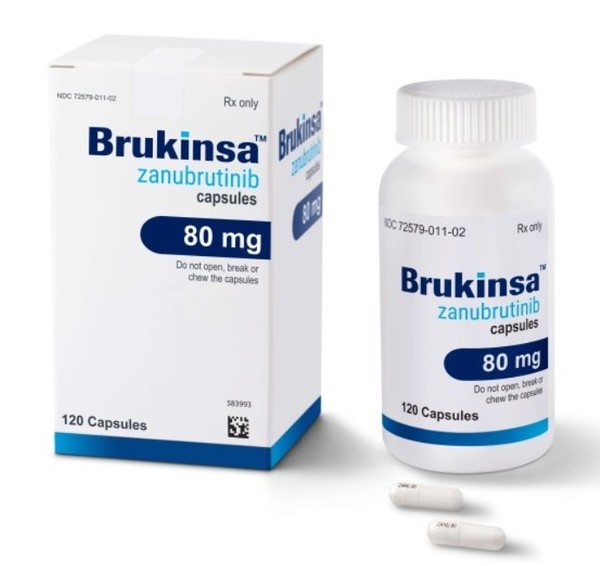BeiGene’s Brukinsa (ingredient: zanubrutinib), a next-generation BTK inhibitor, passed the Health Insurance Review and Assessment Service’s (HIRA) Cancer Drugs Benefit Appraisal Committee review just 40 days after winning marketing approval in Korea.
Merck’s anti-PD-L1 immunotherapy Bavencio (avelumab) and AstraZeneca’s PARP inhibitor Lynparza (olaparib) will expand bladder and prostate cancer indications.

On Wednesday, HIRA released the review results on health insurance benefits for cancer drugs.
Brukinsa can be reimbursable for monotherapy in adult patients with Waldenstrom's macroglobulinemia (WM) who had previously received at least one type of treatment, HIRA said. However, the panel did not pass Brukinsa’s other indication, sought by BeiGene, in monotherapy in adult patients with mantle cell lymphoma (MCL) who had received at least one type of treatment.
Brukinsa is the first drug that obtained a local license since BeiGene’s entry into the Korean market. The treatment passed the first stage of reimbursement in just about 40 days after winning the nod from the Ministry of Food and Drug Safety on Feb. 24.
Brukinsa’s indication, WM, is a subtype of non-Hodgkin lymphoma, which belongs to a rare and slowly progressing B-cell lymphoma.
In Korea, the first-generation BTK inhibitor Imbruvica (ibrutinib) is authorized to treat WM. Compared to Imbruvica, Brukinsa improved several clinically important adverse events such as cardiovascular toxicity and showed excellent tolerability.
Bavencio will have a broader reimbursement as the first-line monotherapy in adult patients with locally advanced or metastatic urothelial cell carcinoma who have not progressed after platinum-based chemotherapy.
According to JAVELIN Bladder 100 trial, adding Bavencio maintenance therapy in patients whose disease did not progress after platinum-based chemotherapy such as cisplatin or carboplatin extended the median overall survival (OS) to seven months.
Lynparza will also be reimbursable for treating adult patients with BRCA-mutated metastatic castration-resistant prostate cancer who have previously progressed after using a novel hormonal therapy.
However, Lynparza’s other indications for ovarian cancer, breast cancer, and pancreatic cancer failed to pass the review.
Lynparza is the only available drug among PARP inhibitors to treat prostate cancer and pancreatic cancer. Lynparza expanded indications for these two types of cancer in October, but the reimbursement review passed prostate cancer indication only.
According to the phase 3 PROfound study of Lynparza versus enzalutamide or abiraterone acetate in men with metastatic castration-resistant prostate cancer who accompany homologous recombination repair (HRR), Lynparza reduced the risk of disease progression and death by 78 percent compared to the control group with prednisone+enzalutamide/abiraterone in the subgroup analysis of BRCA1/2 mutated patients.
The median radiographic progression-free survival (rPFS) was 9.8 months, versus three months of the control group.
Also, the Lynparza-treated group’s median OS was 20.1 months, compared to 14.4 months in the control group. Lynparza reduced the risk of mortality by 37 percent compared to the control therapy.

